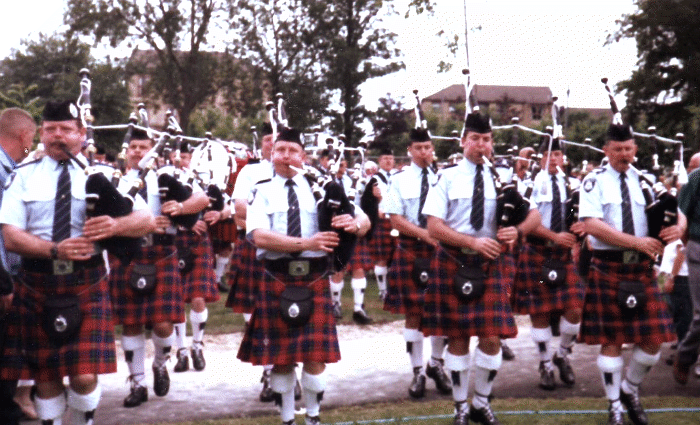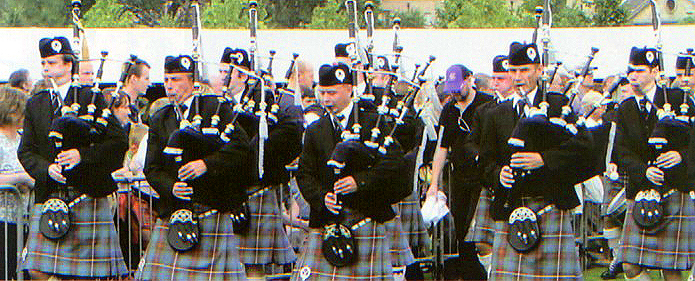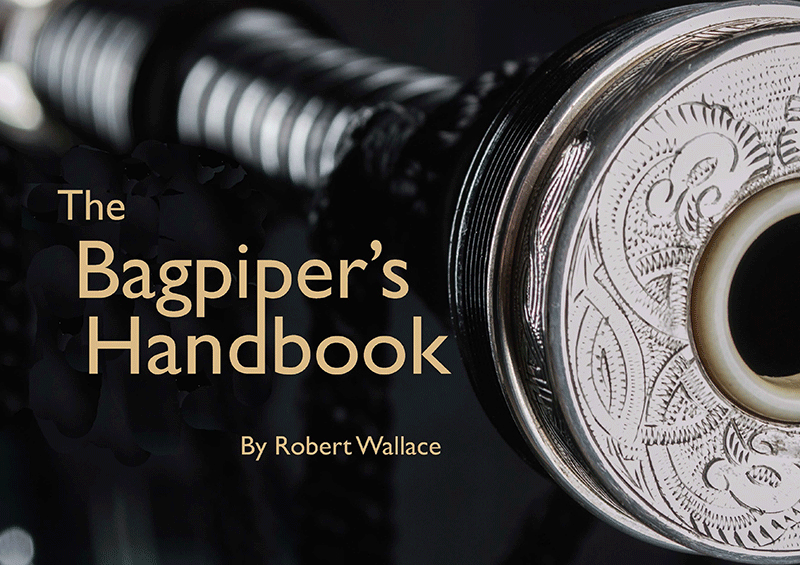
Response to the comments by David Cross earlier this week on this subject have been broadly favourable. Looking at all of the views since this subject was aired on Piping Press several weeks ago, the broad consensus is that the RSPBA needs to act. Pruning the sizes of the mega bands would be of benefit to the broader movement.
We are disappointed that some readers are afraid to put their names to their well reasoned comments. Nevertheless, what they say is valid and constructive hence inclusion here….
Anonymous: David [Cross] is 100% right. As I’ve said, Victoria Police won in 1998 with 16 pipers, then within four or five years after that it was 20 plus and not too many years after that was the decline in the band going to contests. It’s not rocket science to work out what’s wrong. There needs to be a cap for every grade not just Grade 1, but Grade 1 is the biggest contributor to this problem.
David Cross: Eric [McGaw] makes so many valid points and teaching in the piping and drumming school can be no picnic, so fair play. I taught for years. Let’s just say, it can be a lot of work for sometimes very little benefit. Re your comment on the juvenile grade, I do exactly the same, the standard is incredible.
Alistair [McInnes] hits the nail on the head also. The crux of the point that I was making was genuinely not to criticise the top Grade 1 bands. Let’s face it, the best young players will make their choice who they play with and no one can, or would, want to stop them.
I was trying to point out that when you have this ridiculous disparity in sizes of bands, with the most popular bands getting bigger and bigger, and the smaller bands getting smaller or folding altogether, it doesn’t take a genius to work out that the future of the pipe band scene, especially in NI, is in serious jeopardy. I see more often than not now, some bands in some grades, competing against themselves. How is that progress? I agree that the Scottish model with juvenile bands in schools is the way to go, but I can’t see it happening here.
Finally on the subject of local associations, here’s an interesting anecdote. The band of which I was a member for nearly 40 years was formed in the mid 1920s, and attended its first competition towards the end of the ’30s, years before many of the current most prestigious bands in the world were formed.
My band folded in 2012, after a long and sometimes successful history, two World Championship wins in Grade 3 for example. In the intervening 12 years, not a single representative from the local association has ever made any contact whatsoever with any of the leaders of my band, even to ask, what happened. It’s as if we never existed. What does that tell you?
Anonymous: It is not correct to blame the top bands for the demise of the pipe band scene. They are something a young piper will aspire to play in, and keep the motivation going through the learning process.
Also, it is much easier to teach a piper to play in Grade 4, than it is to get them to Grade 1 level. They’d probably lose interest, waiting the 7-8 years it takes to play in Grade 1. It depends on circumstances whether Grade 1 bands have the time to devote to teaching. Boghall and SFU have a system in place, many others don’t.

If you haven’t played in Grade 1 or performed in concerts with these bands, you don’t understand the commitment it takes to play at that level. Anyone at the pinnacle of their vocation/hobby/career, is 100% devoted to achieving excellence. It might be selfish but that’s what it takes. Did Tiger Woods spend his time teaching kids to play golf?
The band pictured in the earlier article, Field Marshal, only have half the pipe corps based in Northern Ireland, so if the NI scene is based on 13 odd pipers causing the problem of the remaining 60 bands, then perhaps something else is wrong. When FMMPB stop competing at that level, the scene will only suffer further.
Nevertheless, restricting the numbers of the Grade 1 and 2 bands will have a big impact, allowing the excess players to move elsewhere to join ranks, become pipe majors, leading drummers, or spend their new found time teaching. However, they may also give up because their goal was to play in a top Grade 1 band.





















Whilst bands particularly in G1 have increased dramatically in numbers and we have read the various opinions which cannot and should not be ignored. The one area which has remained identical is the judges….. How can an individual be asked to accurately judge let’s say a pipe Corp of 20+, similarly drum corp are much larger…. The tenor sections bear no resemblence…. Yet 4 judges…..
Remember the Incident at the world’s last year….. Had that particular individual been the ensemble judge what would have been the decision…. No marks awarded for ensemble….
May I suggest a fair root and branch enquiry is undertaken by the knowledgable and those with integrity and no personal agendas examine the existing outdated way we appraise performances.
If we don’t and with the current economic challenges bands are sorely experiencing our numbers will eventually go down.
I’m delighted to have started the conversation because the subject should be discussed, but i go back to the main reason for initiating the discussion, the fact that the pipe band scene, particularly in NI, is on its knees. Anyone who says otherwise is not reading the room. Go to a local contest and open your eyes would be my advice. I see zero signs of this changing anytime soon.
If there are lots of kids being taught then is their a timescale of when this will begin to show results? Results being; bands en masse being reformed, two bands on competition entry lists no longer being the norm, lower grade bands getting bigger and stronger?
To clarify, the reason why the numbers of pipe bands, players, supporters, followers of pipe bands has tanked, is NOT the fault of huge Grade 1 bands, not once did I say that. It is however a symptom, which some of the commenters on this subject, many of whom are desperately protective of the status of a Grade 1 band, are cleverly trying to avoid. It is also hilariously patronising to suggest that those folk who have never played in Grade 1 really shouldn’t be allowed to comment on the subject, the clear implication being that only exceptional playing ability brings wisdom. Don’t make me laugh! Some of the greatest pipe majors in history spent their whole careers in grades 2, 3 or 4. It didn’t mean they weren’t great pipe majors. Show some respect!
With the notable exception of Boghall and Bathgate Caledonia, name one Grade 1 band who have a current teaching programme initiated from within the ranks of their band, and their band only, to bring players from scratch to grade 1 standard, so that they are not reliant on young players being taught within lower grade bands, those young players leaving their lower grade bands, and heading for the bright lights, cheered on by madly ambitious parents. Because, back to my original point, this naturally weakens the lower grade bands. And the circle goes around, the top of the tree gets stronger, the bottom of the tree gets weaker. If that continues, there is only one way the pipe band scene is heading.
It is one of many symptoms, others being, numbers of young people taking up the instrument reduced, loyalty to your local band no longer seen as the thing you should do, older players retiring early, Covid, cost of living. All symptoms, not specific causes. Can anyone seriously provide evidence that this is not the case?
One aspect not mentioned previously…. a few years ago, the pipe major of a Grade 1 “top 6 band” told me that if he dropped 6 or 7 pipers from his roster, they would simply stop playing in a band, and concentrate on their solo piping. This would be an appalling and unacceptable situation if the well-intentioned capping of band numbers had the unintended consequence of pipers (or drummers) abandoning their hobby and passion.
This band-capping mindset reminds me of the Scottish government’s ‘closing the attainment gap’ philosophy in the education system; instead of raising up the standard of the lowest schools they are more intent on reducing the excellence of the good ones! At least they can then stand up in parliament and say the gap has closed
Do some people seriously believe that removing a handful of players from 2-3 bands in G1 will somehow transform the whole pipe band scene around the world? You are absolutely kidding yourselves. To me (a non-playing parent of a very keen young piper), all this would achieve is to limit opportunities and motivation, not create them. If the lower placing and/or lower grade bands are struggling for talent, instead of trying to hamstring the competition in the hope of picking up some outcasts, why don’t they start a juvenile system (like Boghall) and bring through their own? This would mean they are not competing with the ‘juggernauts’ to poach the best players (that they also haven’t put any effort into developing, so really should stop being bitter about it). It would also create far more opportunities for young people to get into piping and drumming, with more access to top players, and therefore create more players and interest in the genre generally. Would this not have a more positive effect on the pipe band scene?
How’s this for an idea; rather than a cap on numbers, let’s have a rule that says you can’t compete at G1 unless you also have a kids band registered and competing at a minimum number of events? Compel those at the top to do their bit to nurture their own talent and give something back, rather than just poaching from elsewhere (or moaning about not being able to). Give the bands 3 years grace to get their acts together, then from the beginning of the 2027 season they all need to have a bona-fide kids band (NJB, NJA or Juv). Maybe they could fulfil this requirement by partnering with some local schools? Perhaps even take over the running of already established bands? This would reduce the need for as many school bands to be funded from the education budget, and provide a conveyor belt of potential players for the G1 band without having to poach anyone. A win-win. Would that not make more of a difference to improving the long-term prospects of the pipe band scene?
Anyone who thinks there isn’t teaching going on in NI schools now isn’t paying attention. Secondary schools in Belfast, Co Down, & Co Tyrone all have programmes, as do a number of Primary Schools in South Derry. My eldest daughter recently started learning the chanter at her school, where she is being taught by an ex-Grade One PM (she’s also getting the odd extra lesson from her granda who finally has the second piper in the family that he always wanted!)
As for can it be successful here? Some people have short memories, or need to be educated if they are too young to remember.
Monkstown Mossley!
What stated in one primary school fed into a neighbouring secondary school in Newtownabbey ultimately saw the senior band go from Novice Juvenile in 1986 to Grade 1 in 1995 (having become All Ireland Grade 1 drumming champions while still in Grade 2 in 1994!)
Interestingly over 80% of the band that first played in Grade One either went to one, or both, of the schools.
All done pre-skype/WhatsApp & easyJet too!
While it didn’t last, former players went on to play for (some to this day) the likes of Field Marshal Montgomery, the P&D of the RUC, McNeillstown, SFU, SLOT, Shotts, Triumph Street, Canterbury Caledonian and even Spirit of Scotland.
Monkstown doesn’t exist today. Yes there was success by excellent tutoring, but the very thing that everyone seems to crave, a lasting legacy, well it just died!
You would think that a in a city of 300,000 it would be easy to get 30 individuals interested in pipes and drums. Sorry to say it isn’t so. Even a city of millions like London struggles to get the numbers.